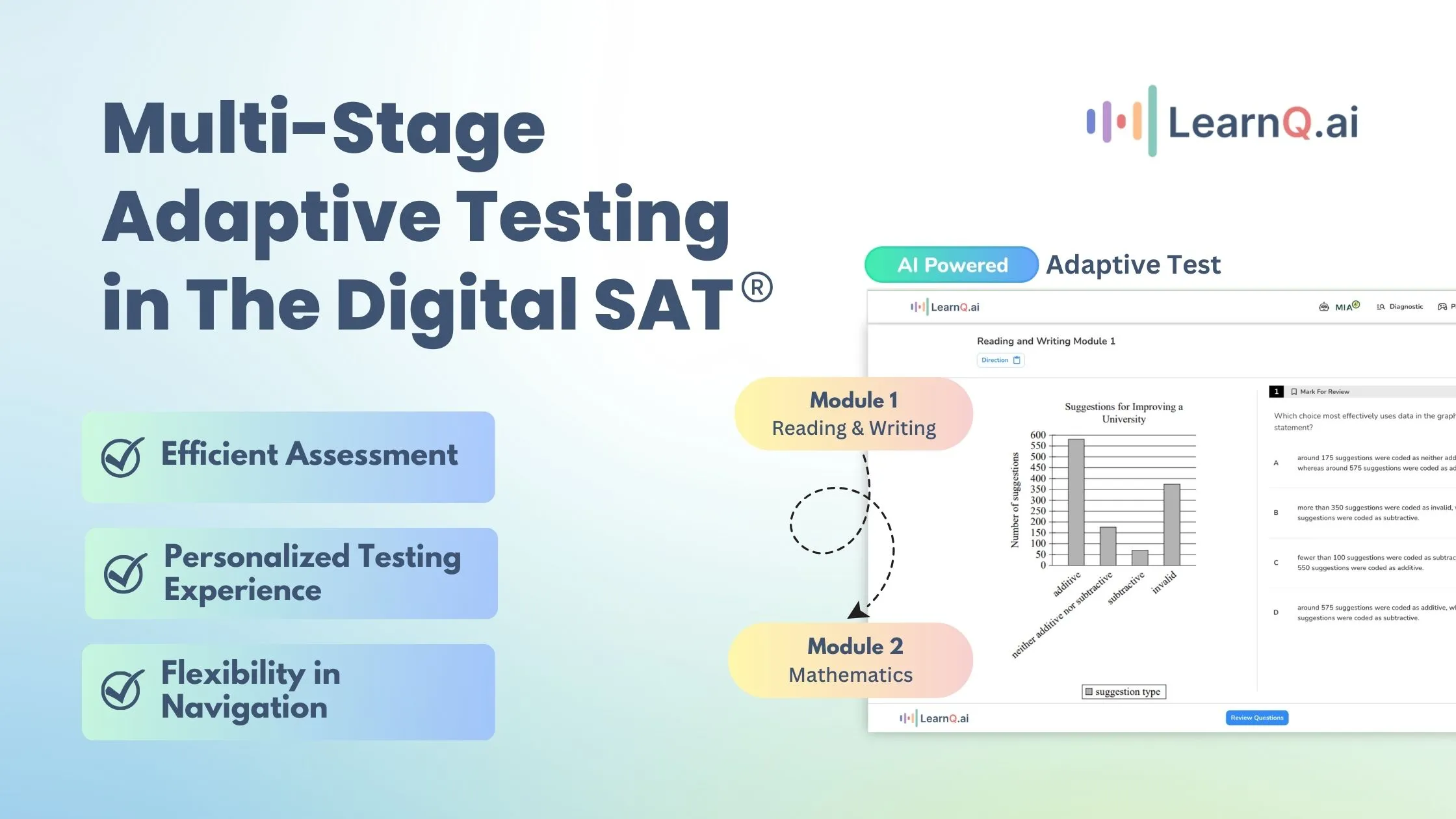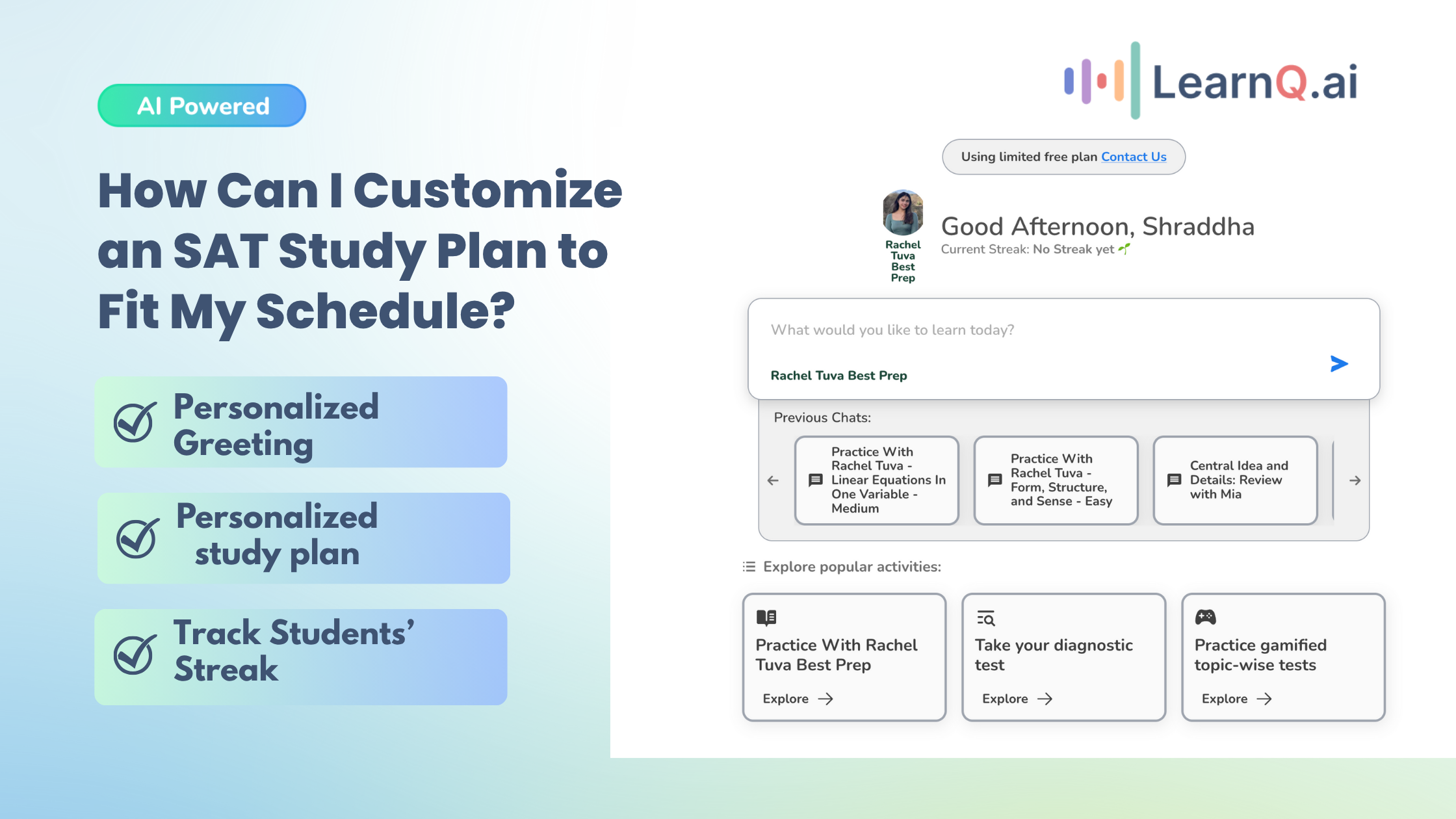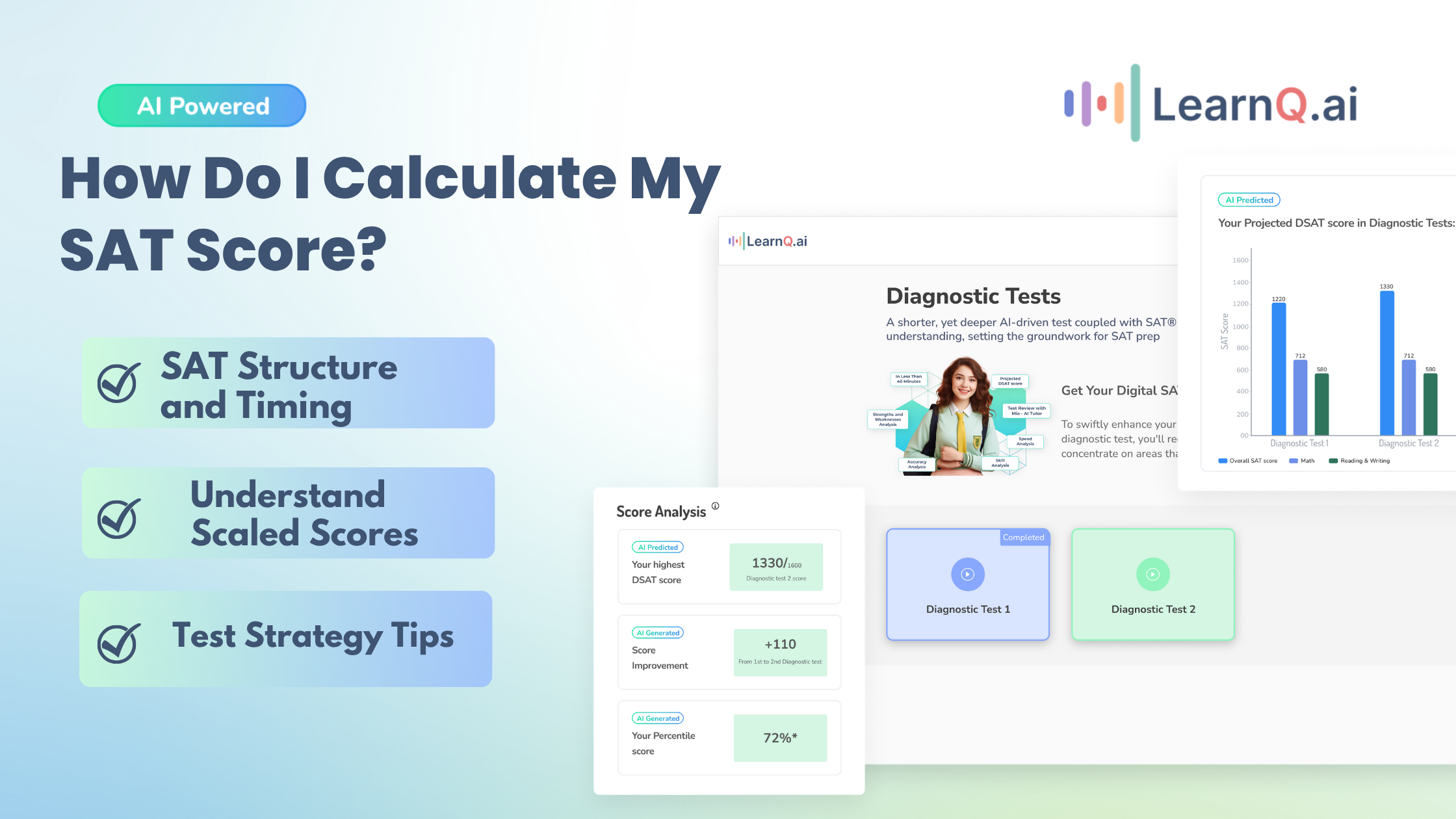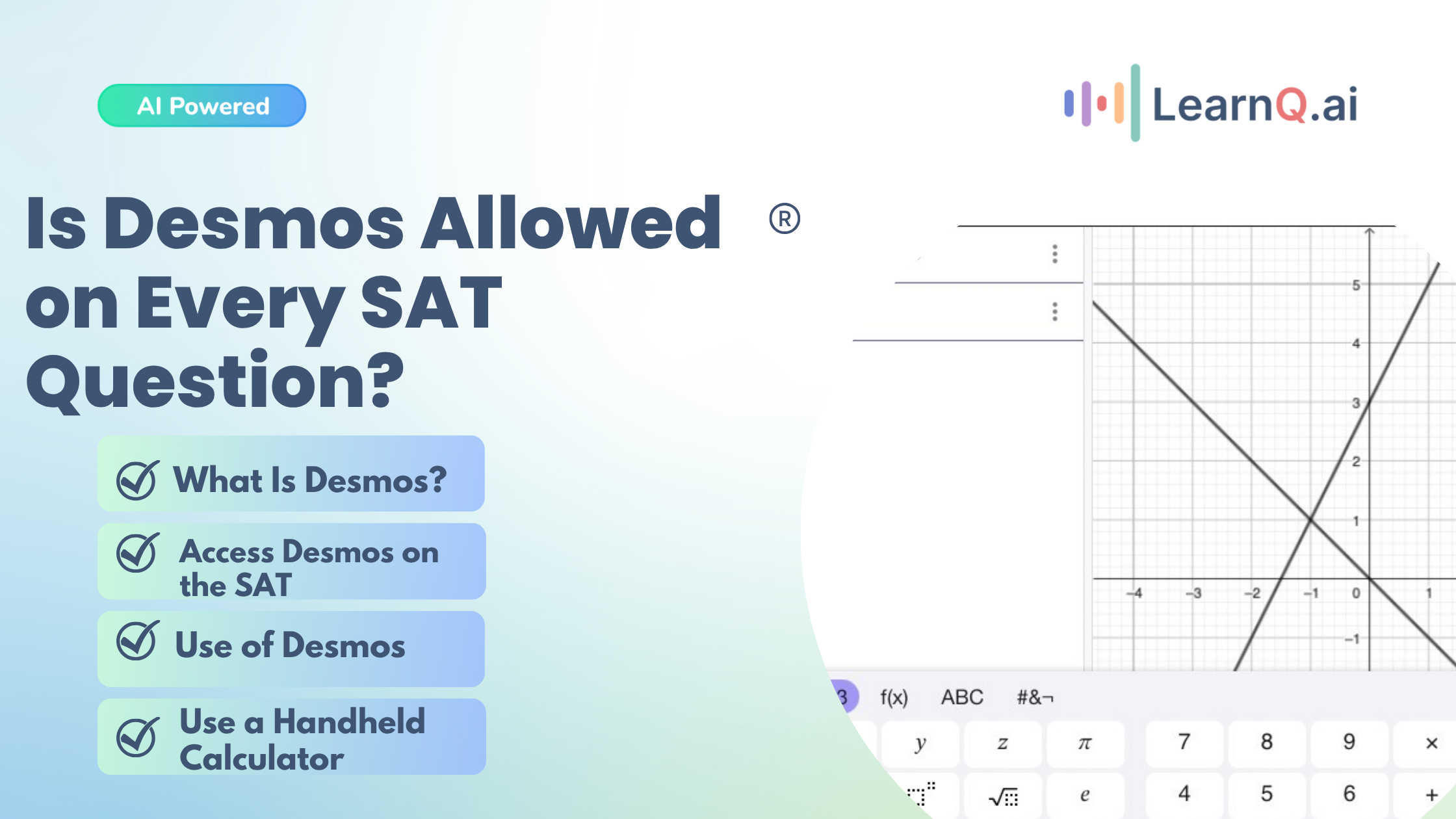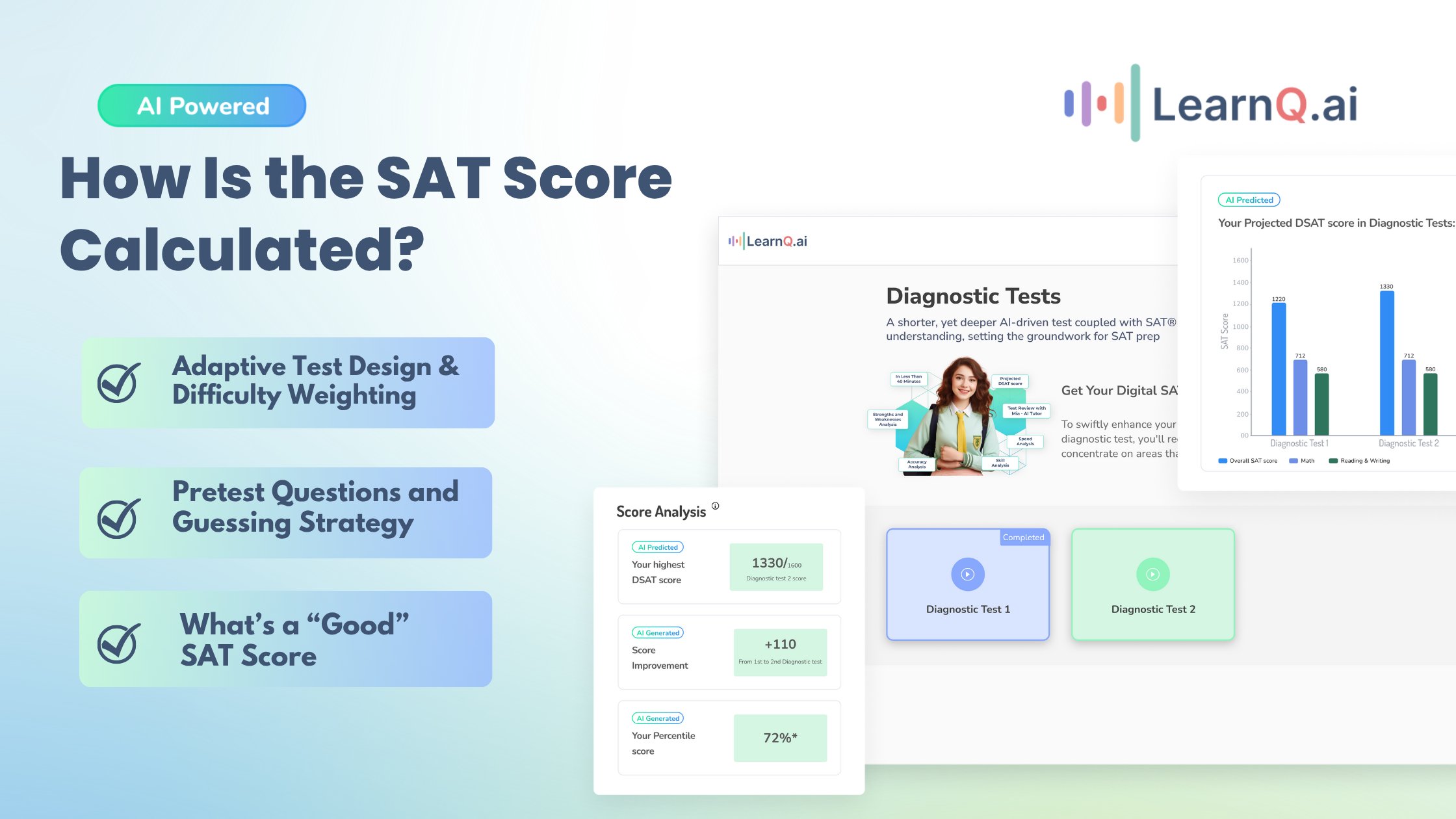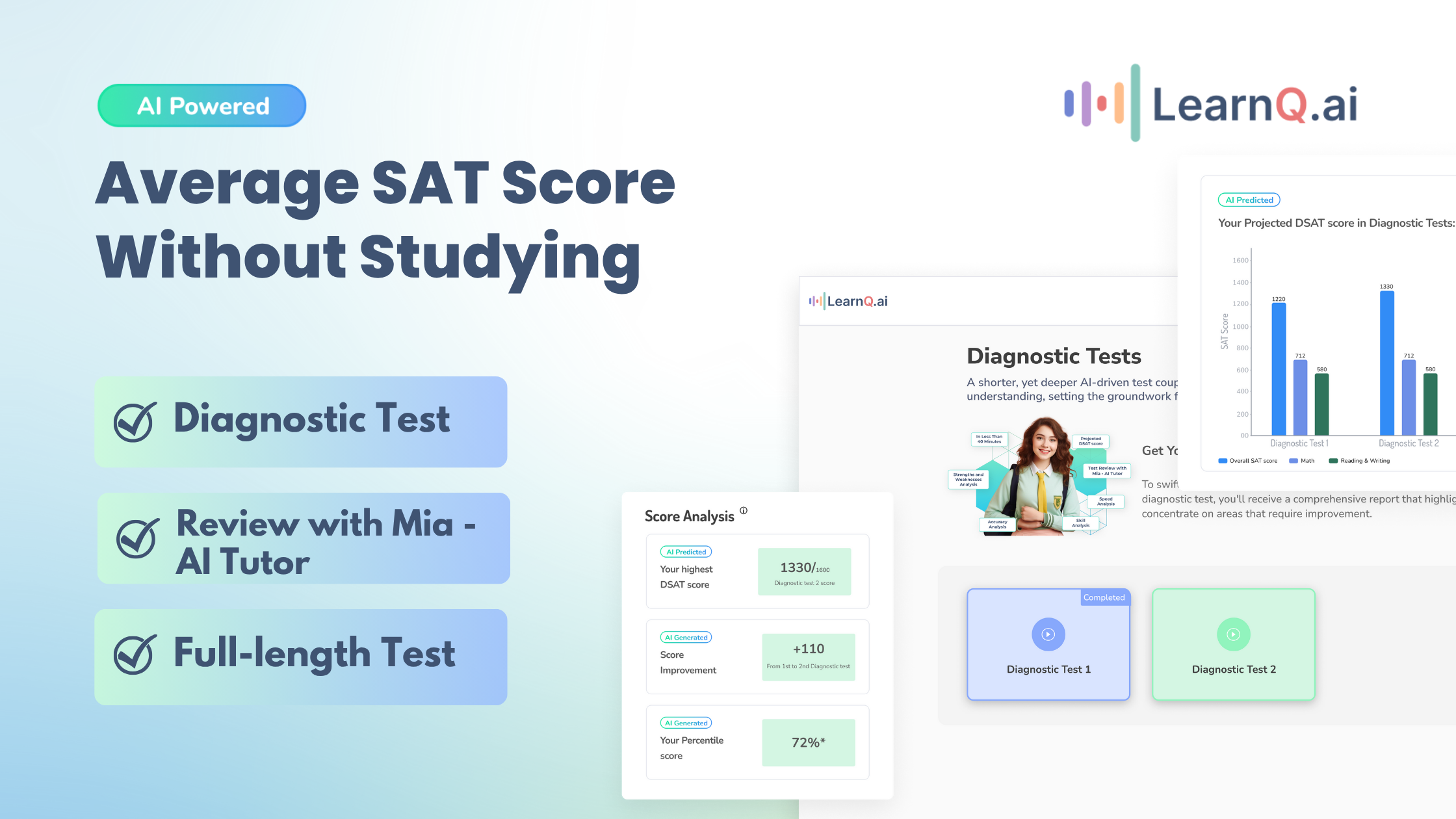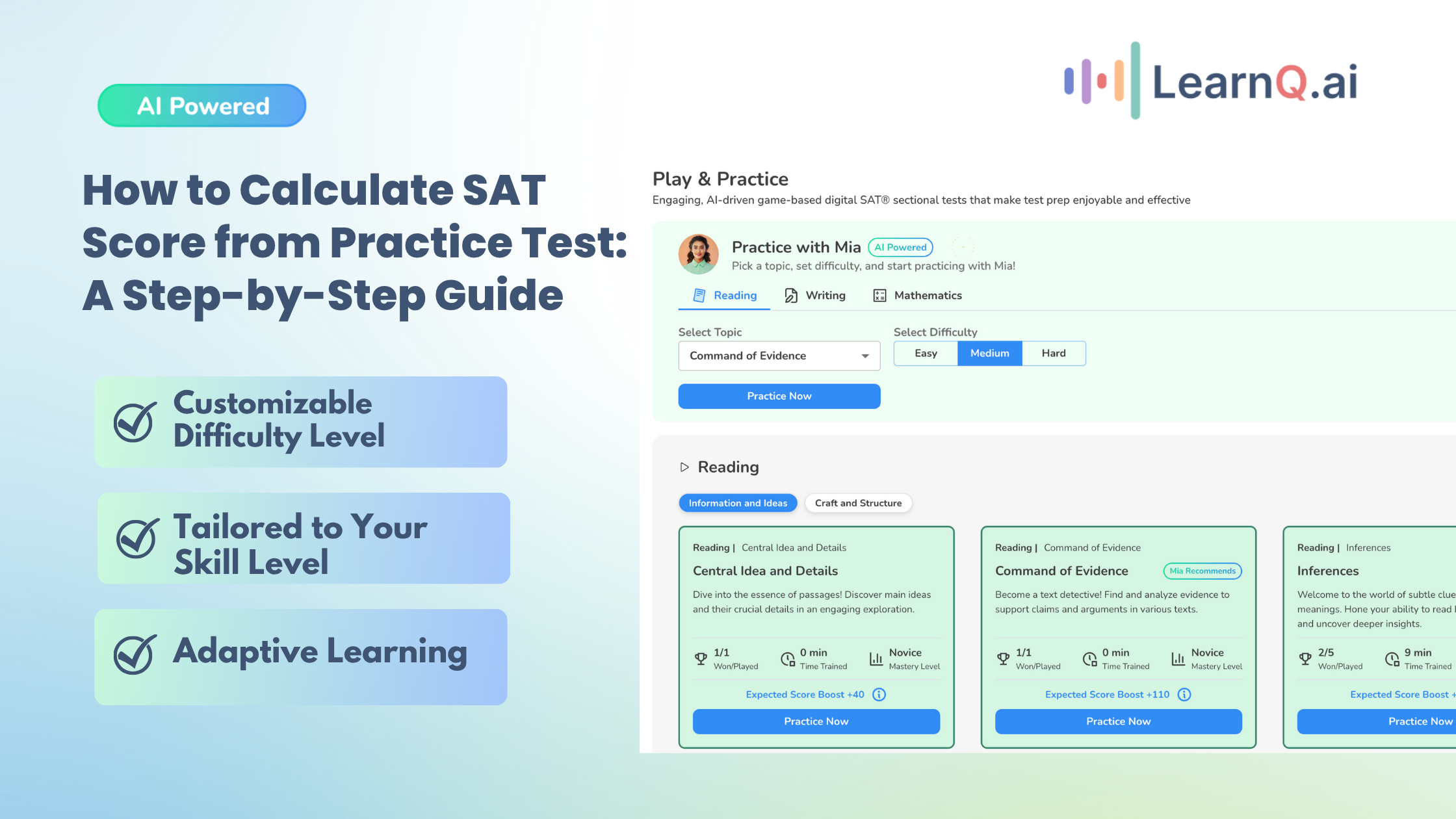The Digital SAT, a paradigm shift from traditional testing models, has embraced a groundbreaking approach known as Multi-Stage Adaptive Testing (MST). This blog delves into the intricacies of MST and how LearnQ Inc’s platform mirrors this innovative approach in its mock tests.
Understanding Multi-Stage Adaptive Testing:
Traditional linear testing models, though effective, have their drawbacks. They are lengthy, less secure, and often inefficient for individual students. Enter Multi-Stage Adaptive Testing – a model that customizes the difficulty of questions based on a student’s performance.
The Digital SAT employs a simple yet effective two-stage MST model. In the first stage, students encounter a diverse mix of questions (easy, medium, and hard) that provides a comprehensive assessment of their ability. Based on their performance in this initial stage, the test delivery platform intelligently selects one of two modules for the second stage – either escalating the difficulty for high-performing students or reducing it for those struggling.
Comprising two modules per test section, the initial (routing) module sets the stage with a diverse mix of easy, medium, and hard questions from all content domains. This not only provides a comprehensive measure of a student’s achievement level but also ensures fair representation across key content dimensions. The adaptive element kicks in after the first module, as the test delivery platform selects a second-stage module based on the student’s performance—opting for a higher or lower difficulty level. This strategic adaptation enables a personalized testing experience. Upon completion of both modules, a section score is derived from the overall performance across all questions in that section. Understanding the MST structure empowers students to approach the SAT Suite tests strategically, recognizing the significance of each module and the tailored adaptability embedded in the testing process.
LearnQ.ai is Powered by VEGA AI—Is your Institute Next?
Give students a Duolingo-style test-prep platform with Shopify-level customization for tutors and institutes.
The Benefits of MST:
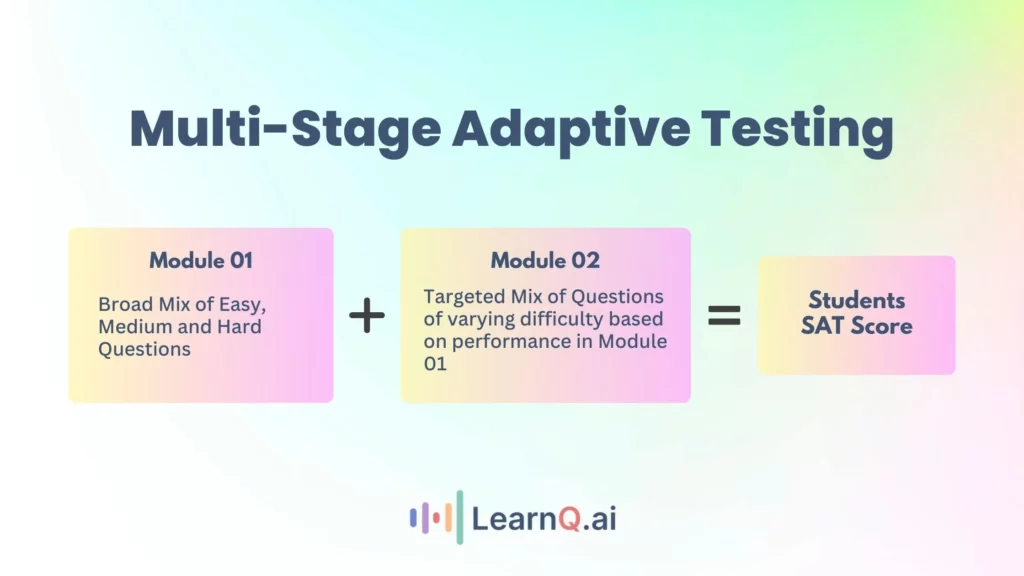
1. Efficient Assessment:
- MST leads to shorter, more focused tests without compromising on the precision or reliability of the assessment.
2. Personalized Testing Experience:
- By adjusting the difficulty level according to the student’s performance, MST creates a tailored experience that can more accurately measure a student’s capabilities.
3. Flexibility in Navigation:
- Unlike other adaptive models, MST allows students to preview and revisit questions within a module, providing a more relaxed and controlled testing environment.
How Multi-Stage Adaptive Testing Affects Your SAT Score:
In the DigitalSAT, Multi-Stage Adaptive Testing works like this: in the first part, everyone gets the same mix of easy, medium and hard questions. But in the second part, the questions depend on how well you did in the first part. If you did great in the first part, you get harder questions in the second part, with a chance to score a perfect 800. If it’s a bit challenging in the first part, your second module will be easier and your score might be capped around 600-650. This smart system helps the College Board check how good you are at the right difficulty level, making scoring more accurate and also making the test shorter.

LearnQ Inc's Platform: A Mirror to MST
At LearnQ, we’ve crafted our mock testing platform to reflect the adaptive sophistication of the Digital SAT’s MST. Here’s how:
1. Simulated Adaptive Testing:
- Our mock tests begin with a diverse array of questions, mimicking the first stage of MST, to gauge a student’s baseline performance.
2. Customized Difficulty Progression:
- Based on initial responses, subsequent module of our mock tests adapt in difficulty, closely replicating the MST experience of the Digital SAT.
3. Realistic Test Environment:
- We ensure that students can navigate through the mock test with the same flexibility and ease as the actual Digital SAT, providing a realistic and comprehensive preparation experience.
4. Robust Infrastructure:
- Our platform is designed to be resilient against connectivity issues, ensuring that students have a seamless mock test experience akin to the actual Digital SAT environment.
LearnQ.ai is powered by VEGA AI—Is your institute next?
Offer students a Duolingo-style test-prep platform with Shopify-level customization for tutors and institutes.






Conclusion:
The shift to Multi-Stage Adaptive Testing in the Digital SAT represents a significant leap forward in educational assessment, offering a more efficient, personalized, and accurate measure of student ability. LearnQ Inc’s platform, with its MST-inspired mock tests, stands as an invaluable tool for students preparing for this new era of digital testing. Embrace the future of testing with LearnQ and step into your Digital SAT with confidence and preparedness.

